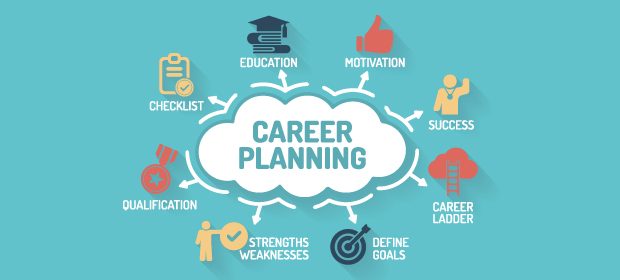Career aspirations are more than just thoughts about your future job; they are the embodiment of your professional dreams and ambitions, the envisioning of yourself in roles that fulfill not only your pocket but also your soul. They are the targets you set for yourself, the summits you strive to reach in your professional journey. But how do we define these aspirations, and more importantly, how do we achieve them? Let’s delve into the intricacies of career aspirations and the pathways to realizing them.
What Are Career Aspirations?
Career aspirations are individual goals that people aim for in their professional lives. Distinct from immediate job objectives, career aspirations are long-term visions of one’s professional journey and ultimate accomplishments. They reflect a person’s ambitions, values, and desire for growth within a chosen field or industry.
Often shaped by personal interests and passions, or making a significant impact in one’s field. For some, it involves climbing the corporate ladder to reach executive levels, while for others it might mean establishing a successful business or becoming a leading researcher or innovator.
Having clear career aspirations can serve as a roadmap, guiding individuals through the necessary steps and decisions needed to reach their long-term goals. This might involve pursuing further education, developing a particular set of skills, gaining relevant experience, or expanding one’s professional network.
Moreover, career aspirations can change over time as individuals gain more insight into their strengths, weaknesses, and the realities of the job market. The ability to adapt and refine these goals is crucial to maintaining motivation and staying aligned with one’s evolving professional identity and life circumstances.
The Importance of Setting Career Aspirations
Setting career aspirations is a fundamental step toward achieving professional success and personal fulfillment. Career aspirations act as a compass, guiding individuals through the often complex and unpredictable landscape of the job market. By setting clear and achievable goals, professionals can focus their efforts and resources on acquiring the skills and experiences necessary to advance in their chosen fields.
Ambitious career goals can serve as powerful motivators, pushing individuals to excel beyond their current capabilities. Aspirations encourage continuous learning and adaptation, which are critical in today’s fast-paced and ever-changing work environment. A commitment to lifelong education ensures that one remains competitive and relevant, regardless of industry shifts or technological advancements.
Moreover, having defined career aspirations helps in making informed decisions when opportunities arise. It allows for strategic networking, selecting appropriate job offers, and identifying the right moments to seek promotions or take on new responsibilities. Career aspirations also influence personal development plans, helping individuals to identify the educational pathways and professional experiences that will best prepare them for future roles.
Furthermore, career aspirations can lead to greater job satisfaction. When people make progress toward their career goals, they are likely to experience a sense of accomplishment and self-efficacy. This positive feedback loop enhances their engagement and productivity at work, which can lead to recognition, higher compensation, and better job security.
In essence, setting career aspirations is not just about climbing the corporate ladder; it is about carving out a path that aligns with one’s values, interests, and desired lifestyle. It is a proactive approach to shaping one’s professional journey and achieving a rewarding career that resonates on a deeper, personal level.
Identifying Your Career Aspirations
The first step towards realizing your career dreams is to identify them clearly. This process involves introspection and self-assessment.
- Reflect on Your Interests: What activities do you enjoy? What topics do you find yourself drawn to?
- Consider Your Skills: What are you good at? Which tasks do you excel in without much effort?
- Evaluate Your Values: What principles are important to you? What work environment and culture do you thrive in?
Understanding these aspects of yourself can help you pinpoint careers that align with your aspirations.
Setting Realistic and Achievable Goals
Setting realistic and achievable goals is a crucial step towards success, both in personal and professional spheres. It involves the process of identifying what you want to accomplish and devising a structured plan to make those aspirations a reality. Goals that are too ambitious can lead to frustration and decrease motivation, while goals that are too easy might not provide enough challenge to drive significant progress.
To set realistic goals, it is important to assess your current situation, resources, and constraints honestly. Understanding your strengths and limitations allows you to create objectives that are challenging yet within your reach. SMART criteria—Specific, Measurable, Achievable, Relevant, and Time-bound—provide a solid framework for goal-setting. This method ensures that goals are clearly defined and that there are tangible means to track progress over time.
Achievable goals require a balance between optimism and practicality. They should stretch your abilities but remain possible through effort and commitment. Break larger goals into smaller, incremental steps to make them more manageable and to provide opportunities for regular achievement, which can boost morale and sustain momentum.
Regularly reviewing and adjusting your goals ensures they remain aligned with changing circumstances and insights gained along the way. This adaptive approach keeps you moving forward, even when unexpected challenges arise, fostering resilience and promoting continuous personal growth.
Developing a Career Plan
With clear goals in mind, develop a detailed career plan. This plan should include:
- Education: Determine if you need further education or certifications to reach your goals.
- Skills: Identify the soft skills necessary for your desired career and plan how to develop them.
- Experience: Seek out opportunities for relevant experience, whether through internships, volunteering, or entry-level positions.
- Networking: Build a professional network by connecting with individuals in your chosen field.
Continuous Learning and Skill Enhancement
The world of work is constantly evolving. Stay relevant by committing to lifelong learning and continuously enhancing your skills.
- Professional Development: Attend workshops, seminars, and courses.
- Mentorship: Find a mentor who can guide you through your career development.
- Stay Informed: Keep up with industry trends and advancements.
Embracing Flexibility and Adaptability
Embracing flexibility and adaptability is essential in the pursuit of career aspirations. In a landscape where industries evolve rapidly, the ability to pivot and embrace new challenges becomes a competitive advantage. Those who cultivate these traits are better equipped to handle the unexpected and seize opportunities that align with their career goals.
Flexibility in the workplace means being open to change, whether it’s adjusting to new technologies, workflows, or roles. It’s about being willing to step outside comfort zones and learn continuously. Understanding the work culture is critical for your corporate success. Adaptability goes hand in hand with this, as it involves responding effectively to change and using it to fuel one’s professional growth.
For individuals with clear career aspirations, these qualities are particularly valuable. They enable one to navigate the dynamic nature of career paths, ensuring that when one door closes, another opens. By staying flexible and adaptable, professionals can remain relevant and proactive in shaping their career trajectories, turning potential obstacles into stepping stones toward their ultimate objectives.
Overcoming Challenges and Setbacks
Challenges and setbacks are inevitable. When faced with obstacles:
- Stay Resilient: Maintain a positive outlook and learn from failures.
- Seek Support: Turn to mentors, colleagues, or professionals for advice.
- Reevaluate Goals: Sometimes obstacles indicate that goals need refinement.
Networking and Professional Relationships
Building strong professional relationships is invaluable for career advancement.
- Engage in Networking Events: Attend industry conferences and meetings. You can leverage networking for job search in your area of interest.
- Utilize Social Media: Platforms like LinkedIn can be powerful networking tools.
- Cultivate Relationships: Genuine relationships can lead to opportunities and support.
Work-Life Balance
Pursuing career aspirations should not come at the expense of personal well-being. Strive for a balance that allows you to be successful both professionally and personally.
The Role of Flexibility in Career Aspirations
The notion of a linear career path is less applicable in today’s dynamic work environment. Be open to lateral moves or even complete changes in direction if they align with your overarching aspirations.
The Impact of Technology on Career Aspirations
Technology has created new career fields and opportunities. Stay tech-savvy and be prepared to pivot towards roles that may not have existed a few years ago.
Conclusion
Career aspirations are the driving force behind a fulfilling professional life. By setting clear goals, developing a robust plan, continuously learning, networking effectively, embracing adaptability, and maintaining work-life balance, you can navigate the path to achieving your career dreams. Remember that the journey is as significant as the destination; each step you take builds the foundation for success in your chosen field. With determination and strategic planning, your career aspirations can become your reality.





